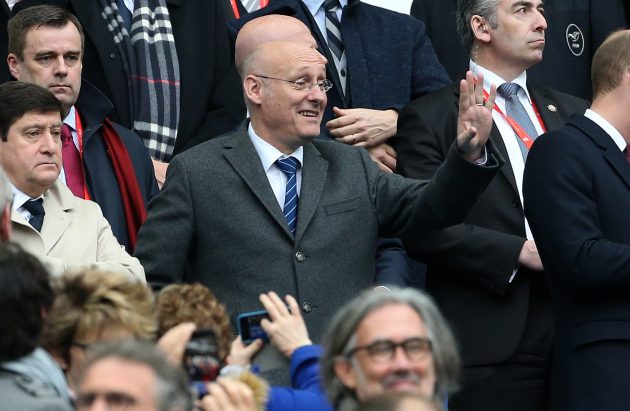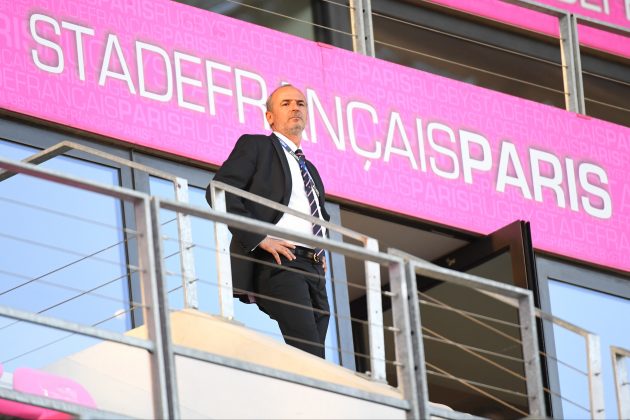Yes, it was clumsily, even brutally, enacted but wasn’t the merger of Stade Francais and Racing 92 the best for both clubs in the long-term? Evidently not for the players and supporters of Stade, who whipped up such a reaction that they ultimately forced Jacky Lorenzetti and Thomas Savare to back down.
Hip hip hooray, and power to the people!
It’s just a shame so many of Stade’s supporters haven’t been bothered to attend matches in recent seasons. Take the 2013-14 campaign, for example, when Stade’s average home gate was 17,000, the sixth best in Europe, a figure that had plummeted to 11,577 in 2015-16 (18th best in Europe). And this during an era when they won the Top 14 title and hosted Champions Cup matches for the first time in six years.
Indeed, when Stade won the Top 14 in 2015 barely 1,000 fans bothered to attend the official presentation of the trophy, compared to the 50,000 Toulon supporters who had hailed their heroes 12 months earlier on the Côte d’Azur.
In the past 24 hours there has been much talk of ‘tradition’ winning out, but tradition isn’t always a positive. It can also constrain, halt progress that, while painful in the short-term, is necessary in the long-term. Look at Biarritz and Bayonne, two famous old clubs who almost merged in the summer of 2015. That again was put paid to by people power. The result? Bayonne are bottom of the Top 14 and Biarritz are enjoying their third season in the ProD2.

Knocked back: Bayonne have really struggled in this year’s Top 14
One can understand the reaction of the Stade players to last week’s announcement. Nobody likes to learn they could soon be out of a job but the fact is most would have soon found gainful employment elsewhere. And what of the role of Pascal Pape, the self-appointed players’ spokesman, who was allegedly the driving force behind the strike? He’s given the club a decade of good service but he retires at the end of this season. As Midi Olympique wondered last week, was his involvement inspired by his devotion to Stade Francais or the fact he’s a vice-president of the FFR?
The FFR was against the merger although the cynic may have wondered if their opposition didn’t grow stronger when they learned that the LNR was broadly supportive. There is a power struggle going on in French rugby at the moment and the feeling in some quarters is that the merger was an issue over which the two factions could flex their muscles.
To an outsider, the past week has encapsulated much of what is wrong with France in general, why the country’s economy is moribund and why millions of its brightest and most innovative brains live in London, New York and San Francisco. The French are resistant to change, it scares them, particularly when it involves a break with tradition. Even more so when it’s a cold, hard business decision. How unscrupulous. How vulgar. How Anglo-Saxon.

Tense relations: Is Bernard Laporte’s FFR at war with LNR?
In the end Savare and Lorenzetti, two men who have funnelled millions of their own money into their respective clubs, decided the insults and aggravation weren’t worth the effort and walked away from the merger. Who can blame them? In a professional sport why deal with amateurs.
Lorenzetti will have to mend fences with players and staff but he’s still got his spanking new stadium to look forward to, and a strong business model to boot. Not so Savare. It’s said he has set a deadline of three months to sell the club otherwise he will petition for bankruptcy, six years after he stepped in to save Stade Francais from such a fate.
But who would want to buy the club? No one, according to Savare. “In six years I haven’t received one credible offer,” he said recently. It’s hardly surprising.
First there is a deficit believed to be €8m; then there’s the prospect of two top-flight rugby clubs (five miles apart as of next season) competing for the attention of the notoriously indifferent Parisian public, and then there’s the fact that the club doesn’t own its own stadium or its training facilities, both of which are the property of the Paris city council. As L’Equipe put it, a club is worth only what it possesses. In Stade’s case that’s just a name.
No wonder Savare is desperate to get shot of the club, and no wonder either for the angry tone he struck in an interview in Monday’s edition of Le Parisien, the capital’s daily newspaper. “I remain convinced that it’s the best project, the one which makes most sense in the long-term,” he said, although he admitted mistakes had been made in its initial presentation. Nonetheless, he said, he believed the real mistake has been in the strength of opposition that forced the abandonment of the merger.

Public display: Stade’s Sergio Parisse wears a pink wrist band during the final Six Nations match
Saying he believed the players had been “manipulated”, Savare added that the merger had fallen victim to the current in-fighting within the French game. “We presented this project in a very complex context, in a climate of rivalry between the FFR and the LNR. Frankly, it’s intolerable.”
Savare didn’t convey an air of optimism for the future of Stade Francais, and nor did he exude much positivity about the sport as a whole. “French rugby is living beyond its means,” he said. “Everyone has to realise it. We’re on an intravenous drip.”
Savare tried to resurrect Stade Francais with an infusion of capital six years ago, but that didn’t work; last week he tried an infusion of hard-nosed pragmatism but that also failed. The result? Stade Francais’ life support machine could soon be switched off.





